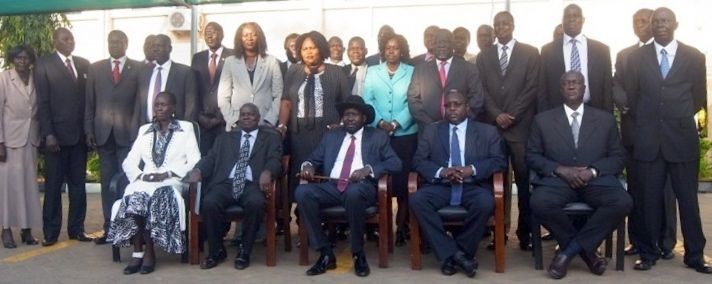Europe, US say Kiir government ‘will face consequences’

The United Kingdom, United States, Norway and the European Union on the eve of peace talks have threatened 'sanctions' against the South Sudanese government owing to their obstruction of the peace process and repeated violations of the two accords signed in January.
Sanctions would involve the kind of legal and economic measures taken against such leaders as Muammar Gaddafi and Saddam Hussein. Measures imposed in these cases included travel bans and asset freezes, which restricted the ability of government officials to travel abroad and retain property and savings in other countries.
"If the government and any other actor tries to undermine the peace process and rebuff the IGAD heads of state, they will face consequences," says a joint statement by the ‘Troika’ – the United States, Britain, Norway – and the European Union.
Donald Booth, the US envoy to South Sudan, and Alexander Rondos, the EU special envoy to the Horn of Africa, said Washington and Brussels were both considering "targeted measures" against individuals.
“The EU reiterates that it stands ready to consider targeted restrictive measures against individuals obstructing the political process, in support of AU and IGAD efforts and in close coordination with international partners,” reads a statement by the EU Council on Monday.
The involvement of the European Union in the sanctions threat suggests the measures being considered would potentially be even more wide-ranging in effect than those now employed against the north Sudanese government by the United States.
According to the External Action Service of the European Union the sanctions that the EU has historically applied normally take the form of “arms embargoes, economic and financial restrictions and restrictions on admission.”
“The EU has often imposed targeted financial sanctions, which can be designed to target specific persons, groups and entities responsible for objectionable policies or behavior,” explains the website of the EU foreign policy arm.
“Such sanctions comprise both an obligation to freeze all funds and economic resources of the targeted persons and entities and a prohibition on making funds or economic resources available directly or indirectly to or for the benefit of these persons and entities,” it adds.
Diplomatic sources in Addis Ababa explained that they had lost patience with the South Sudanese government for violating the two accords signed in January – the ceasefire agreement and the agreement on the status of detainees.
They also objected to the government’s refusal to deal with the SPLM ‘third bloc’ which the mediation of the Inter-Governmental Authority on Development (IGAD) wants to include in the political talks.
Moreover, the European Union in its council resolutions on Monday called for the release of SPLM Secretary-General Pag’an Amum and three other political prisoners, whose treason trail was set to resume on the eve of the peace talks.
File photo: The cabinet of South Sudan (Gurtong)